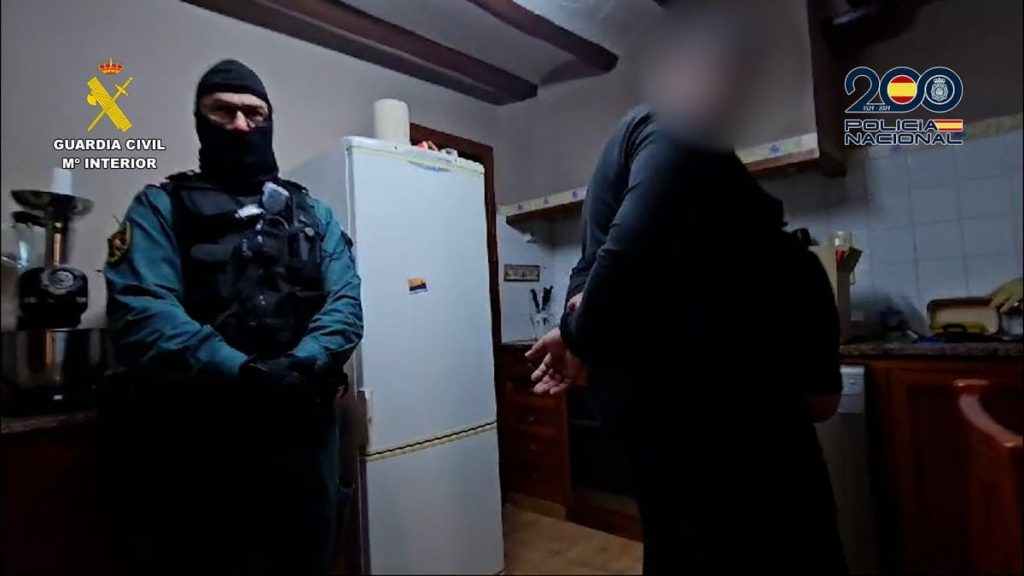The La Sirga restaurant website on the seafront of Torredembarra (Tarragona) boasted a wide menu of Italian and Spanish dishes, with one of its chefs having worked at a Michelin-starred restaurant in Italy and was described as “innovative and creative while remaining true to tradition.” They offered seafood platters, pizzas, pasta dishes, paellas, and a weekend menu for 28 euros. However, a joint operation by the National Police and Civil Guard involving 180 agents revealed a much darker reality behind the white tablecloths, tall wine glasses, and sea views shown in the photos: an alleged human trafficking ring that allowed this establishment to have waiters working in near-slavery conditions, forcing them to work up to 15 hours a day from Monday to Sunday and sometimes paying them only 20 euros at the end of the month. Two other restaurants and an ice cream parlor in the same area were also involved, all of which were closed by judicial order after 12 of the alleged perpetrators were arrested on April 8, and 46 victims were identified, most of whom were hospitality students from Colombia who were deceived into coming to Spain, according to the Ministry of the Interior. Three of the arrestees have been remanded in custody for crimes including belonging to a criminal organization, human trafficking for labor exploitation, aiding illegal immigration, illegal detention, and falsification of documents.
The operation, dubbed Operation Napoleon-Aguazul, began last October after several Colombian citizens reported to police stations in Alicante and El Ejido (Almeria) that they had been brought to Spain under false promises of work in restaurants on the Tarragona coast where they suffered labor exploitation. Additional testimonies gathered at police stations in Tarragona province implicated the same restaurants, owned by a Spanish-Italian couple. Investigations revealed that the ring controlled the trafficking process from recruitment in Colombia, where individuals associated with the organization enticed hospitality school students with paid work in Spain, offering them a four-hour daily contract with two days off per week, holidays, and a monthly salary of 500 euros. However, once in Spain, the victims were subjected to grueling working conditions, with long hours, minimal breaks, no vacations, and their salaries deducted to pay off their debt to the organization, resulting in some receiving just 20 euros a month. Those who arrived with tourist visas were coerced into enrolling in costly training courses to legalize their status, which were never actually provided.
Accommodations were provided in crowded apartments where they slept in bunk beds and were constantly monitored via surveillance cameras controlled by the ringleaders. Workers were denied sick leave and given medication to continue working. The police action on April 8 led to the arrest of 11 individuals in Spain and one in Italy, with raids on the victims’ residences, the ringleaders’ homes, and the four restaurant premises, which were subsequently shut down. Authorities seized cash, weapons, electronics, and documents, including the restaurant owners, two of the woman’s daughters, a recruiter, the establishment’s accountant, and restaurant managers. While 46 victims have been identified so far, authorities believe more may come forward as the investigation continues, with some already approaching the agents during the raids to report their own experiences of labor exploitation at the establishments.
A customer on a platform where users review restaurants and leisure spots described La Sirga as a “pretentious beach shack” just days before the police operation, criticizing its high prices, small portions, inadequate seafood platters, and only praising the staff’s service, who were presumably being exploited in near-slave conditions while serving pizzas and paellas. Authorities believe the trafficking ring had been operating for seven years, with further victims potentially coming forward in the coming weeks. The closure of the restaurants and the arrest of those involved shed light on the dark underbelly of the hospitality industry and highlight the importance of cracking down on human trafficking and exploitation in all its forms. The operation serves as a stark reminder of the harsh realities facing some workers behind the glamorous facade of restaurants like La Sirga.


